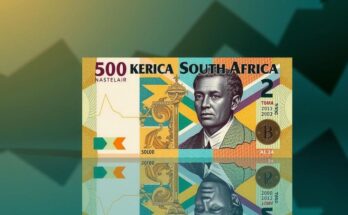Brazil’s real depreciated due to political instability and economic stimulus measures, closing at R$5.80. Strong labor market data raised investor concerns about the government’s ability to manage inflation amid proposed stimulus initiatives. The Ibovespa index fell 0.96%, reflecting negative sentiment, while interest rates surged. Corporate earnings driven volatility and international market pressures also contributed to the overall market downturn.
Brazil’s real has weakened amid growing concerns over the government’s economic stimulus measures. Recent events, including uncertainty regarding a cabinet reshuffle and strong labor market indicators, have contributed to the decline of the real, marked by a 0.83% increase in the exchange rate against the U.S. dollar, which closed at R$5.80. Investor sentiment turned negative, reflected in the Ibovespa index’s drop of 0.96%, settling at 124,769 points.
The market’s reaction to recent labor data from CAGED, a signal of a resilient economy, raised alarms among investors considering the Central Bank’s efforts to manage inflation. Proposed stimulus measures, such as easing access to severance funds and reinstating Income Tax exemptions, could complicate monetary policy, necessitating higher interest rates. Consequently, interest rate futures demonstrated a downward trend, with significant increases noted in the January 2027 and January 2029 Interbank Deposit contracts.
Political instability has further heightened market volatility, particularly with renewed activities in Brasília. Luiz Eduardo Portella from Novus Capital remarked on the direct impact of labor market data on economic activity, stating that the government’s stimulus plans were causing anxiety among investors. He suggested that Novus Capital is adjusting its investment strategy to long positions in longer-term interest rate futures due to perceived fiscal risks.
Marcos Weigt, treasury director at Travelex Bank, pointed out ongoing uncertainty regarding government strategies, emphasizing a lack of coherent plans and a tendency towards gradual economic stimulation rather than significant initiatives. He raised concerns over the potential impact of proposed Income Tax exemptions, predicting challenges in achieving compensatory measures to offset financial losses.
The Brazilian real’s depreciation was exacerbated by rumors concerning possible changes in key government positions, including the potential transfer of Finance Minister Fernando Haddad. Weigt emphasized that such political shifts could negatively affect market sentiment, particularly as current candidates for such roles are not viewed favorably by investors.
In corporate news, earnings reports influenced market dynamics, with WEG shares plummeting 8.68%, while Ambev experienced a 5.5% increase following better-than-expected earnings. Augusto Lange of Neo Investimentos noted the significant stock volatility attributed to high holding costs due to elevated interest rates, which heightens investor sensitivity to negative news.
Despite generally positive earnings results, forward guidance revealed an anticipated slowdown in revenues, impacting market responses more than the earnings figures themselves. Lange shared that he exited some equity positions in light of diminishing return potentials following a January rally.
Internationally, markets faced challenges, including U.S. President Donald Trump’s tariff threats against Eurozone products, although the impact was minimal on Wall Street, where the Dow Jones fell 0.43%. Concurrently, the 10-year U.S. Treasury note yield changed, indicating slight shifts in global market sentiment.
The weakening of Brazil’s real amidst political and economic uncertainties highlights the challenges faced by the government in stabilizing the economy. Stimulus measures aimed at boosting consumption may conflict with efforts to maintain inflation targets, as evidenced by rising interest rates and market volatility. Investors remain cautious, reflecting concerns over fiscal policies and political leadership changes that could further impact economic stability.
Original Source: valorinternational.globo.com




